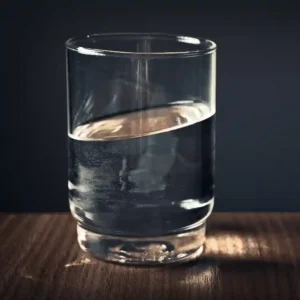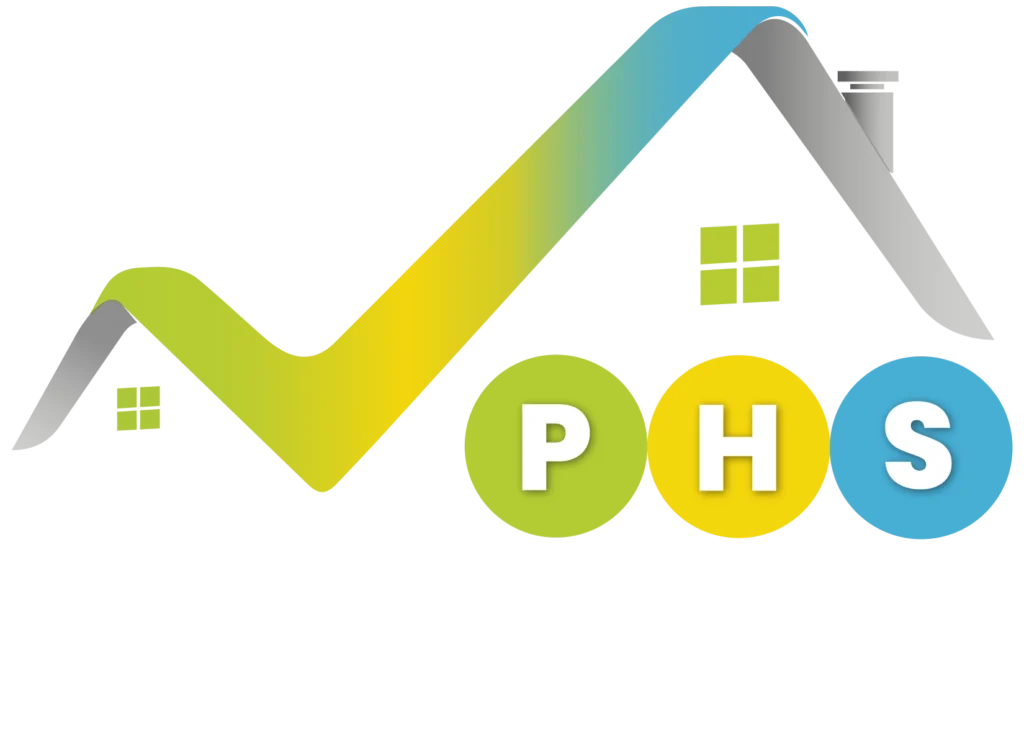Water filtration systems have become increasingly popular among those who value pure and healthy drinking water. Moving away from bottled water and adopting a more sustainable option is not just about preference or convenience; it’s about understanding how our choices impact the environment and our own well-being. Bottled water, with its plastic waste and carbon emissions, negatively affects our planet. On the other hand, installing a water filtration system at home is a positive step that aligns with nature and benefits our bodies.
Making the switch from bottled water to a water filtration system is not only important for individuals but also for the greater cause of sustainability. This article is here to guide you through this crucial transition. We will explore:
- The importance of water filtration systems in providing safe drinking water
- The negative effects on the environment and health associated with bottled water consumption
- The various filtration choices accessible to homeowners
Let’s begin this journey towards understanding the significance of clean water in our lives, ensuring that every glass we drink at home promotes health and well-being for ourselves and our precious world.
About Water Filtration System Installation

The Significance of Clean Water Filtration in Your Home
Access to clean and purified water is not just a convenience; it’s essential for maintaining good health and preventing waterborne diseases. Having a reliable water filtration system at home is crucial for the well-being of both individuals and families. Here’s why ensuring the purity of your household water is so important:
Direct Health Impacts
Contaminants in water can be visible particles or tiny pathogens that are harmful when consumed. Here are some examples:
- Microbial contaminants like bacteria, viruses, and parasites can cause gastrointestinal illnesses.
- Chemical pollutants such as lead and mercury, which are heavy metals, may lead to long-term health problems.
Chemical Pollutants
Municipal water supplies often contain chemicals like chlorine and chloramines used for disinfection purposes. While they are effective at killing certain pathogens, their presence in drinking water can also pose health risks over time.
Additionally, chemicals from agricultural runoff, such as pesticides and herbicides, can seep into water supplies, raising concerns about their effects on human health.
Microbial Contaminants
Untreated or inadequately treated water can be a breeding ground for harmful organisms. Ingesting these microbes can lead to diseases such as dysentery, cholera, and typhoid fever—ailments that are preventable with proper water filtration.
Adopting a comprehensive filtration system ensures that these risks are mitigated. By removing hardness minerals from your water with efficient Water Softener Systems offered by PUR Home Services, you not only enhance the taste and safety of your drinking water but also protect your plumbing infrastructure from scale buildup.
By focusing on the health benefits of clean water and understanding the potential hazards that unfiltered tap water may pose, households are better equipped to make informed decisions regarding their water consumption habits. It’s clear that embracing a suitable home filtration solution not only contributes to overall wellness but also complements a proactive approach toward personal health management.
Understanding Different Types of Water Filtration Systems
When it comes to safeguarding your family’s health with clean drinking water, selecting the right water filtration system is paramount. Various systems are available, each employing different technologies to remove contaminants and improve water quality.
Reverse Osmosis Systems
Reverse osmosis systems use a semi-permeable membrane to remove impurities from water. How reverse osmosis works is quite fascinating. Water pressure pushes tap water through this specialized membrane, effectively trapping contaminants on one side and allowing pure water to pass to the other. This process strips away not only dirt and sediment but also harmful chemicals, heavy metals, and even certain bacteria and viruses.
Advantages of Reverse Osmosis Systems
- Exceptional Purity: They provide some of the purest water available, which is excellent for drinking and cooking.
- Removal of a Wide Range of Contaminants: These systems are effective against numerous pollutants including lead, arsenic, fluoride, and nitrates.
- Taste Improvement: By removing contaminants, these systems can also eliminate odors and improve the taste of your water.
Considerations for Reverse Osmosis Systems
- Water Wastage: These systems can waste several gallons of water for every gallon purified.
- Slow Process: The filtration rate is slower compared to other types of systems.
- Maintenance Requirements: The membranes and filters need regular replacement to maintain efficiency.
For those concerned about specific chemicals like chlorine in their tap water, it’s worth exploring our Chlorine Removal Systems that complement reverse osmosis technology for an even higher assurance of purity.
Carbon Filtration Systems
Another popular choice is carbon filtration systems. Activated carbon filters work by adsorption; contaminants are attracted to the surface of the carbon granules and held there. This type of filtration excels in removing chlorine, volatile organic compounds (VOCs), pesticides, and industrial solvents from your water supply.
Benefits of Carbon Filtration Systems
- Improved Taste and Odor: Activated carbon effectively removes substances that cause taste and odor issues.
- Ease of Maintenance: These filters are typically easy to replace and do not require a complex setup.
- Cost-Effectiveness: They offer a more affordable solution for home water treatment.
Limitations of Carbon Filtration Systems
- Less Effective Against Minerals: They do not remove minerals like salt or dissolved inorganic compounds well.
- Filter Lifespan: The filters can become saturated with contaminants over time, requiring routine replacement.
Considering adding a dedicated drinking water filter? Our Refrigerator Filtration Systems may serve as an ideal complement to a whole-house carbon filtration system.
Ion Exchange Systems
Ion exchange systems target hardness minerals such as calcium and magnesium that cause scale buildup in pipes and appliances. These systems substitute these hardness minerals with sodium or potassium ions through resin beads charged with either sodium or potassium ions. As hard water passes over these beads, a swap occurs – calcium and magnesium are captured by the beads, while sodium or potassium is released back into the
Advanced Water Treatment Solutions
If you’re looking for more advanced water treatment options for your home, PUR Home Services has you covered. We offer a range of customized Water Treatment Systems designed to provide pure and safe drinking water that fits your specific needs. Additionally, our Reverse Osmosis Drinking Water Systems are an excellent choice for those who prioritize extremely clean water.
Choosing the Right System
It’s important to remember that each type of filtration system is designed to target specific impurities. Whether you’re considering Reverse Osmosis, Carbon Filtration, or Ion Exchange Systems, selecting the right combination can make all the difference in achieving the highest possible water quality for your household.
For expert advice on choosing between reverse osmosis systems, carbon filtration systems, or ion exchange systems tailored to your specific needs in Lehigh Acres, FL, PUR Home Services offers over 30 years of experience in providing top-tier water treatment solutions. Our expertise can help you make an informed decision for your home’s water treatment needs.
Installing a Water Filtration System: A Step-by-Step Guide
When you decide to embrace the benefits of a home water filtration system, you might wonder whether to attempt a DIY installation or call in the professionals. While there’s a certain pride in tackling home projects on your own, it’s essential to weigh the complexity of the installation against your skills.
Safety First
Before starting any installation, make sure to prioritize safety:
- Turn off the main water supply to prevent any mishaps.
- Check local building codes as some areas require a licensed plumber for such installations.
- Ensure you have all necessary tools and components as outlined by your system’s manual.
General DIY Installation Steps
For those with a knack for hands-on projects and wish to install a filtration system themselves, here’s what to expect:
- Choose the Location: Identify where you want your system mounted, ensuring it’s easily accessible for maintenance.
- Mount the Filtration System: Securely attach the unit to the wall if required; make sure it’s stable.
- Cut the Pipe: Carefully measure and cut into the main water line where you’ll integrate your new system.
- Install Fittings: Apply Teflon tape and attach fittings that will connect to your filter securely.
- Set up Connections: Connect the pipes to your filtration unit, double-checking for secure fits to prevent leaks.
- Flush and Test: Once everything is hooked up, follow instructions to flush the system through before turning on your main water supply. Then check for leaks and test water quality.
Remember, these steps are generalized; always refer to your specific model’s manual for precise instructions.
Benefits of Professional Installation
Professional plumbers for installation bring more than just expertise; they offer peace of mind:
- They know how to handle unexpected issues that often arise during installation.
- They ensure everything is up to code and can offer valuable advice on system maintenance.
By opting for professional help, especially from seasoned experts like PUR Home Services, you tap into years of experience that guarantee longevity and optimal functionality of your water filtration system.
As you contemplate between DIY installation or contacting professionals like PUR Home Services at 239-330-9739, consider not only the immediate cost but also long-term reliability and effectiveness of your water filtration system.
Conclusion
Installing a water filtration system in your home is more than just upgrading how you consume water every day; it’s an investment in your health and a way to be more environmentally responsible. By choosing to have a reliable water treatment system in your house, you can:
- Protect yourself and your loved ones from potential contaminants in the water you drink.
- Make a big difference in reducing the need for single-use plastic bottles, which directly helps with environmental conservation.
If you’re ready to improve the quality of water in your home, remember that expert help is available. You can contact PUR Home Services at 239-330-9739. Our dedicated team has been serving Labelle, FL, and the Greater Lehigh Acres area for over 30 years, so we understand the importance of giving personalized service. We’re here to assist you in choosing the right water filtration system for your specific needs and making sure it’s installed correctly.
Get in touch with PUR Home Services today, and let’s start this important journey towards a healthier home environment and a greener planet.
